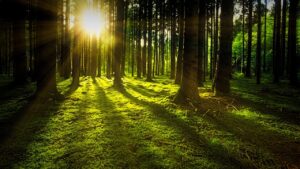This week, we celebrate Tu B’Shvat – literally the 15th of the Hebrew month of Sh’vat, which the Talmud designated as the New Year for Trees. This was for the purpose of determining which fruit trees would be tithed each year, as there were different rules depending on the age of the tree.
This little-known, dry accounting designation was picked up by the Kabbalists of the 16th century, who related it to the story of Adam and Eve in the Garden of Eden, and their choice in eating from the Tree of Knowledge. The Kabbalists were concerned with repairing all the spiritual damage they thought this choice had done to the world, and part of their method involved eating symbolic fruits in a specific order, which they thought would encourage the healing of that damage.
In modern times, Tu B’Shvat has come to represent a focus on repairing the physical damage that humans have caused to the environment, often by planting trees (where possible – not in Winnipeg in January!). It is customary to support environmental causes and discuss issues related to combating climate change.
While the original focus was on fruit trees that could be tithed to support the Temple priesthood, it has now become imperative to consider trees as carbon sinks, helping reduce the greenhouse gasses in the atmosphere that are causing global warming, creating habitat for endangered species, filtering pollutants from the air, and of course, providing shade and beauty in urban areas.
Many forests in the temperate zone, weakened by climate change, are being affected by pests such as the emerald ash borer and Dutch elm disease, unwittingly imported by humans. The Amazon rainforest, sometimes called the lungs of the planet, is also under attack from clear cutters and ranchers. Excessive logging threatens old growth forests everywhere.
What can we do?
There is not much that individuals can do directly, although planting trees is always a good thing, as is considering our carbon footprint in everyday life. But it is imperative that our governments and large corporations be held accountable for their effect on the environment that we are leaving for our children and grandchildren. Don’t keep quiet – support environmental advocacy organisations, lobby your representatives, remember that the Tree of Life is not just a symbol – without trees, we can have no life.
If you are in Winnipeg, this is a good place to start.
Happy Tu b’Shvat! I’d love to hear what you are doing to help the trees. Let’s collect some good links to share!

